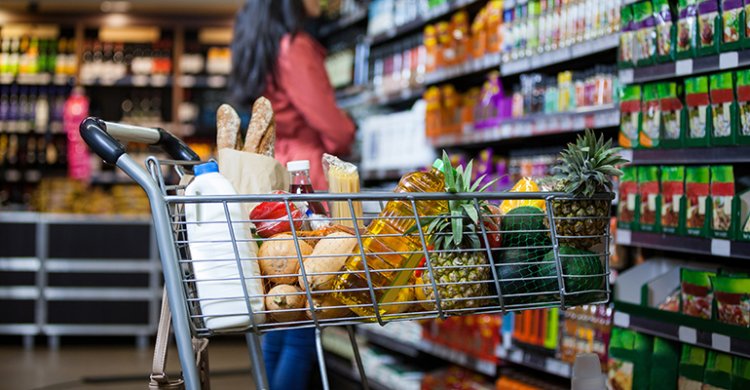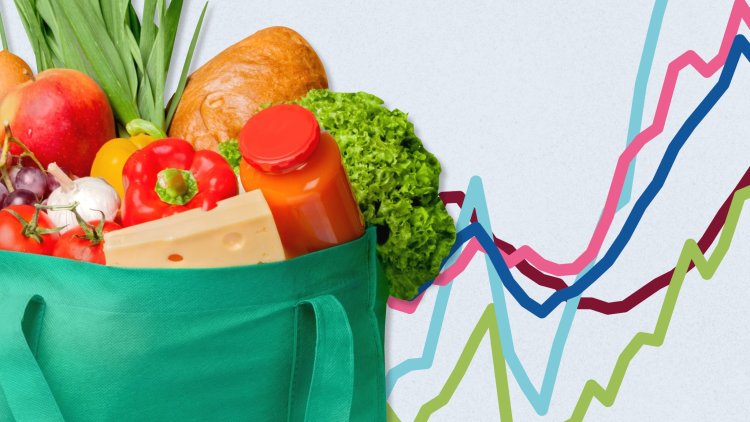Controlling prices.. A European move to confront the high cost of living
While the measures succeeded in reducing the cost of basic items, economists believe they are a poor solution to rising food prices.

Retailers and governments in Europe are locked in the fiercest fight over food costs in 50 years.
Policymakers are turning to price controls to tackle the worst cost-of-living crisis in a generation.
Although lower energy prices eased overall price pressures, growth in the cost of food continued to rise, prompting increasingly unorthodox market interventions from politicians trying to quell public anger.
Food prices
Food prices in the European Union rose 16.6 percent in the year to April, according to Eurostat, far exceeding the headline inflation rate of 8.1 percent.
Some of the largest increases were in the cost of staple foods, with the cost of eggs rising 22.7 percent over the period, whole milk up 25 percent, and sugar up 54.9 percent.
Set prices in Europe
"We haven't had price controls in a general pattern in the Western world since the 1970s," said Lars Gunung, a Swedish economist.
Central and Eastern European countries hardest hit by the price hike, such as Hungary and Croatia, have moved to reduce the cost of necessities to protect the most vulnerable, who tend to spend more of their income on food.
Greece (price limit)
Greece has taken an alternative approach to reducing prices by capping retailers' profit margins on food and other necessities.
In richer economies, France has negotiated a looser agreement with supermarkets to offer a selection of items at the lowest possible price.

Spain and Italy
Spain is one of several countries that have reduced value-added tax on food. Others, like Italy, are under pressure to reduce the cost of beloved staples like pasta.
The pressure on retailers to commit to higher prices has been exacerbated by the sharp decline in the cost of agricultural commodities over the past year. The United Nations food price index decreased by 19.7 percent in April, compared to the same month last year.
Price inflation
“While some price hikes may be justified, there is growing suspicion that others are just opportunistic excuses by companies to inflate prices.
Continent, who called on governments to "adopt strong measures to protect consumers from price hikes".
Fighting inflation in France
Belgian consumer watchdog Test Achats called for action similar to France's anti-inflationary basket proposal, which was harder than Paris managed to pull off. The Austrian Chamber of Action, AK, has also called for "price regulation" of foods.

Price manipulation
However, retailers say they are not to blame and that, far from price gouging, they have to be swayed by capped goods.
Kodaly Delikatessen, a small supermarket in Pécs, southern Hungary, bundled capped products under a banner warning customer not to buy "products of dictatorship," saying the wholesale price of some items was higher than the set retail price.
Large companies operating in Hungary - such as Lidl, Spar and French retailer Auchan - have claimed the same.
"If you buy sugar, you pay 500 forints (€1.35) per kilo, and you have to sell it for 300 forints (€0.85)," said a representative of an international retailer.
"You're making a negative margin per unit sold, which is absolutely absurd in a sector like retail that has high volumes and low profit margins."
While the measures succeeded in reducing the cost of basic items, economists believe they are a poor solution to rising food prices.

Cost of living crisis
A World Bank report on Thursday called on European governments to provide more "targeted policy interventions and social safety nets" to support those suffering from the cost-of-living crisis.
However, the multilateral lender stressed that price controls and subsidies were "suboptimal because they distort price signals to consumers and producers".
Hungarian central bank governor Gyorgy Matulci went further at a parliamentary hearing in December. "You can't win this battle with old tools," he said.
Price caps and all similar ideas had already proved ineffective during socialism.
"You can put a cap on one type of milk, but the inflation basket contains dozens of types," said Peter Ferrofax, an analyst at ING Bank.
But the hardships of shoppers hurt by the high cost of their weekly shop mean economists fear politicians will continue to resort to price caps, no matter how effective they are.
“As a tool to reduce inflation, price fixing does not work,” Gunung said. "But it's addictive and it's hard to break the habit."


 Shrouq
Shrouq 












